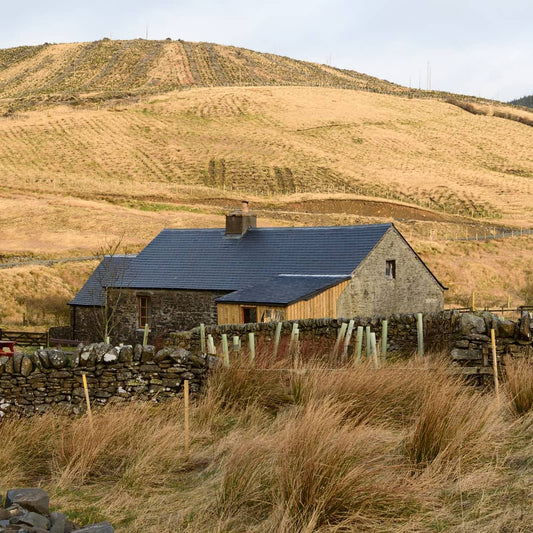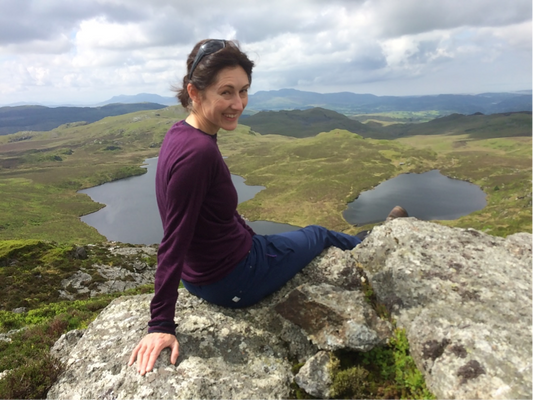Before launching FINDRA in December 2014 I spent about 18 -24 months doing a lot of market research, reading numerous articles about the cycling and outdoor industry and the fashion and trend Industry.
For 20+ years I had been a practising fashion designer, working on the knitwear collections of high-end luxury brands. The Industry worked 2 years ahead of the season so I would begin research, design and development work for collections 18 months ahead of their launch to market.
There were two key seasons: ‘Autumn Winter’ and ‘Spring Summer’. As I progressed through my career it was clear the pattern was shifting, and a change in the Industry was coming as the pressures mounted on brands and designers to produce more and more ranges and to have them land on shop floors much quicker.
Whilst doing the ground work ahead of my launch of FINDRA, I read a lot about ‘fast fashion’. The clothing brand ZARA was being held in high regard as the new business model to follow with their incredibly fast turnaround of designs, shorter lead times for production and the addition of new lines. Zara offered 24 new clothing lines a year, while H&M offered 12-16 and refreshed them weekly.

Among many European apparel companies, the average number of clothing collections had more than doubled from 2 a year in the year 2000 to 5 a year by 2012. Research by McKinsey & Company found that "the number of garments produced annually has doubled since 2000 and exceeded 100 Billion for the first time sine 2014".
With consumers keeping clothing items about half as long as they did 15 year ago, the trend led to consumers treating low priced garments as disposable, discarding them after just seven or eight wears.
Now, it doesn’t take a maths genius to conclude that the outcome is that a lot of garments end up going to landfill.
This ‘fast fashion’ approach to clothing concerned me. As a wet-behind-the-ears entrepreneur looking to launch her own clothing brand, I felt overwhelmed by this approach to design, production and distribution. If this was the way forward and what consumers wanted then I felt an impeding sense of doom!
How could I possible start, never mind build a business that could function in this way?
The reality was I couldn’t, and the truth of the matter for me was I didn’t want to anyway! The throw away approach to clothing has never appealed to me, fast trend-led fashion was not the way I wanted to work and not the type of business I wanted to create.
Fast forward to 2017 and a spotlight has been shone on the Fashion Industry and the extensive supply chain behind it, highlighting the massive contribution the industry and our buying habits make to land fill sites.
Many have claimed the Fashion industry is the second biggest pollutant in the world, a claim that has been disputed and written about in the New York Times. The reality is that no matter whether it’s the 2nd, 3rd or 4th biggest pollutant, the industry and its consumers are certainly contributing to major issues around sustainability in the clothing industry and the wider textile industry, covering home wears and interior textiles.
We may not be 100% sure about our position on the list of the world’s worst industry polluters but there are some things we do know for sure;
- Nearly three-fifths of all clothing ends up in incinerators or landfills within a year of being produced.
- More than 8% of global greenhouse-gas emissions are produced by the apparel and footwear industries.
- And, around 20 to 25% of globally produced chemical compounds are utilized in the textile-finishing industry.

The Considerations
When I started FINDRA, there were 3 keys aspects that I wanted to weave into the brands DNA: good design, consideration to the planet and a strong desire to encourage more people to get outdoors and reap the benefits of being in nature.
I knew I wanted to create a business and brand that is based on a “sustainable business model”, countering fast, cheap fashion and damaging patterns of fashion consumption.
Sustainable fashion means to create clothes, shoes, accessories and other textiles without damaging the environment with all its components or affecting people’s lives. This must be considered in all stages of the product life cycle -- clothing production (design, raw material production, manufacturing, transport, storage, marketing, final sale) as well as their afterlife (use, reuse, repair, remake, recycling, up cycling).
Having a sustainable approach to designing, sourcing, manufacturing, buying and using clothes is key to protecting the planet, as well as the lives of those involved in the creation of garments.

What We Do
At FINDRA we design and create a CORE range of product’s that are not seasonal nor are they in anyway ‘fast fashion’. We do not create collections that have short life cycles nor products that go out of fashion encouraging a disposable, throwaway approach to clothes.
Instead we concentrate on creating stylish designs made from natural or recycled raw materials. Products that are designed to last and out live any ‘fashion craze or trend’. Products that are useful all year round, have longevity and functional design details.
When sourcing a supplier and or manufacturer we aim to work only with factories that treat their workers and staff in a humane manner. Since 70% of our products are made in the UK, we have personally visited these factories to see for ourselves the working conditions and standards that the factories operate within. When working with overseas suppliers we have taken the time to meet with UK representatives and, as often as possible, the management team behind the supply chain by attending international trade shows and communicating with key personnel.
At FINDRA, we are committed to creating products wherever possible that are beneficial to both people and the earth. Our priorities are to source natural or recycled raw materials, which form the basis of our designs.
It’s not always easy as a small, unknown brand to go against the tide, stick your neck above the parapet and decide to do things differently. But we do and as a team we are proud of that.
We believe in what we do, who we are and what we offer. In many ways it’s quite simple;
‘FINDRA exists because we care, we care about people and we care about the planet.'
It is our mission to offer innovative, stylish, sustainable performance clothing. Products that are good for you and the planet.
We may be small but as my favourite entrepreneur, Anita Roddick, said
‘If you think you are too small to have an impact try getting into bed with a mosquito in the room”





